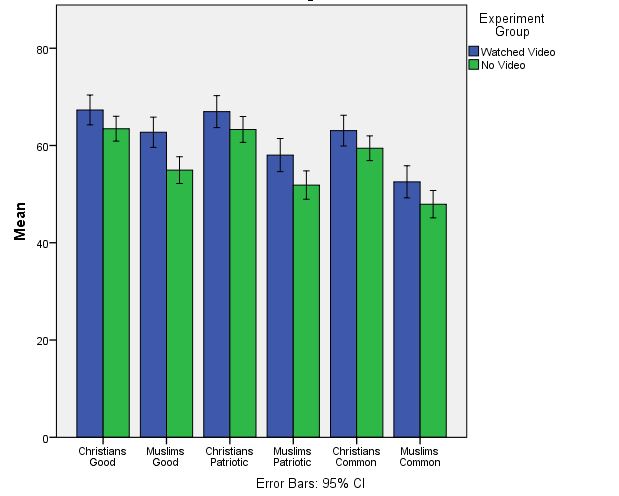The Positive Inter-Religious Effect of Reading About Peace First’s Programs
In our last post, we wrote about how we are currently working with numerous partners bridging divisions and one of the common questions that partners get concerns the broader impact of their work. Specifically, people who are joining organizations that seek to bridge divisions are less likely to be the ones causing and perpetuating divisions. They likely are people who already have relatively positive impressions of the other side and a sincere desire to get along.
However, previous research on extended contact suggests that the effects of these programs may not be limited to those who attend these programs, but also may extend to those who hear about these programs. When people within a group read about members of their group getting along with members of a different group, it can affect their feelings about the other group, without any direct contact taking place.
Does this apply to some of the partners we are working with? We recently wrote about how over 90% of members of the Sisterhood of Salaam Shalom tell someone else about their participation and the average person tells 20 others. Indeed, this is an intentional part of the Sisterhood’s model – to have the impact of the Sisterhood extend to the communities in which members are embedded. This is also part of the model of Peace First, an organization that helps youth lead peace-making projects, with the hope that it not only affects the youth, but all the people who read about the youths’ projects.
It just so happens that one of the project stories that they promote on their site relates to interfaith cooperation as it shows a Muslim youth working together with another teenager on a project. Does watching the below video affect attitudes toward religious groups?
To answer this question, we recruited 740 people from Mechanical Turk to answer questions about their attitudes toward Muslims and Christians. We asked whether they thought each group was generally composed of good people, sincerely wanted what is best for America, and were people they had a lot in common with. We randomly assigned one group of participants to watch the above video before answering questions, in order to experimentally determine the effect of watching such a video. Below are the answers to these questions as a function of whether participants in this study watched or did not watch the above video first.

As you can see by the error bars, those who watched the video were significantly more likely to think Muslims (and Christians) were generally good people, were patriotic, and were people they had something in common with. While you’ll notice that people in both groups generally felt more positively toward Christians, the distance between how they felt about Christians and Muslims also shrank for those who watched the video. In summary, as research on extended contact effects would predict, reading about these programs does affect the attitudes of non-participants. Granted that the effects here are small, but it is worth considering that many people who are friends with people doing these programs may hear about the program at a much more personal level and many times over a longer time period. We hope to study those effects longitudinally as well, but we feel like this is a promising start in showing that people who do these programs tell a lot of people about them and then the people that they tell are likely being affected as well.
– Ravi Iyer



